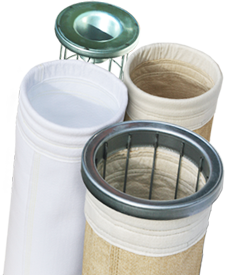In environments where dust and particulate matter are prevalent, choosing the appropriate filtration system is critical. Cartridge filters and dust collector bags are two commonly used options, each with its own advantages and disadvantages, making them suitable for various applications. This article compares cartridge filters and dust collector bags, outlining their strengths, weaknesses, and typical uses.
Introduction
Filtration is an essential component of maintaining a clean and safe work environment in industrial settings. Cartridge filters and dust collector bags are two widely used filtration options, each offering unique benefits and drawbacks.
Cartridge Filters
Cartridge filters are cylindrical in shape and are typically made of a pleated filter media. They are known for their ease of installation and compact size, making them ideal for applications where space is limited. However, their capacity is limited compared to dust collector bags, requiring more frequent replacements.
Pros of Cartridge Filters:
- Easy to install and replace
- Compact size, suitable for limited space
- Available in a variety of filtration efficiencies
Cons of Cartridge Filters:
- Limited capacity, requiring more frequent replacements
- Higher initial cost compared to dust collector bags
- Less effective for high-volume dust collection
Dust Collector Bags
Dust collector bags, also known as filter bags, are large fabric bags that are suspended inside a dust collector. They have a higher capacity compared to cartridge filters, making them suitable for high-volume dust collection applications. However, they are more space-intensive and can be more challenging to install and replace.
Pros of Dust Collector Bags:
- High capacity, suitable for high-volume dust collection
- Effective filtration of fine particles
- Lower initial cost compared to cartridge filters
Cons of Dust Collector Bags:
- More space-intensive installation
- Challenging to install and replace
- May require more frequent cleaning to maintain efficiency
Applications
The choice between cartridge filters and dust collector bags depends on the specific requirements of the application. Cartridge filters are ideal for smaller-scale operations or where space is limited. They are also suitable for applications where frequent filter replacements are not a concern. On the other hand, dust collector bags are more suitable for larger-scale operations or where high-capacity filtration is needed.
Performance Comparison
In terms of filtration efficiency, both cartridge filters and dust collector bags can effectively capture dust particles. However, cartridge filters may require more frequent replacements, leading to higher maintenance costs. Dust collector bags, on the other hand, have a higher capacity and may require less frequent replacements, making them more cost-effective in the long run.
Environmental Impact
In terms of environmental impact, both cartridge filters and dust collector bags can be disposed of and replaced. However, cartridge filters may generate more waste due to their more frequent replacements. Dust collector bags, on the other hand, may require less frequent replacements, leading to lower waste generation.
Case Studies
In a woodworking facility, the use of cartridge filters helped improve air quality and reduce the risk of respiratory issues among workers. Similarly, in a metalworking plant, the use of dust collector bags ensured compliance with air quality regulations by capturing contaminants in the air.
Conclusion
In conclusion, both cartridge filters and dust collector bags have their own set of pros and cons, making them suitable for different applications. The choice between the two depends on the specific requirements of the application, including space limitations, filtration efficiency, and maintenance considerations. By understanding the advantages and disadvantages of each option, industries can select the right filtration system for their specific needs.


